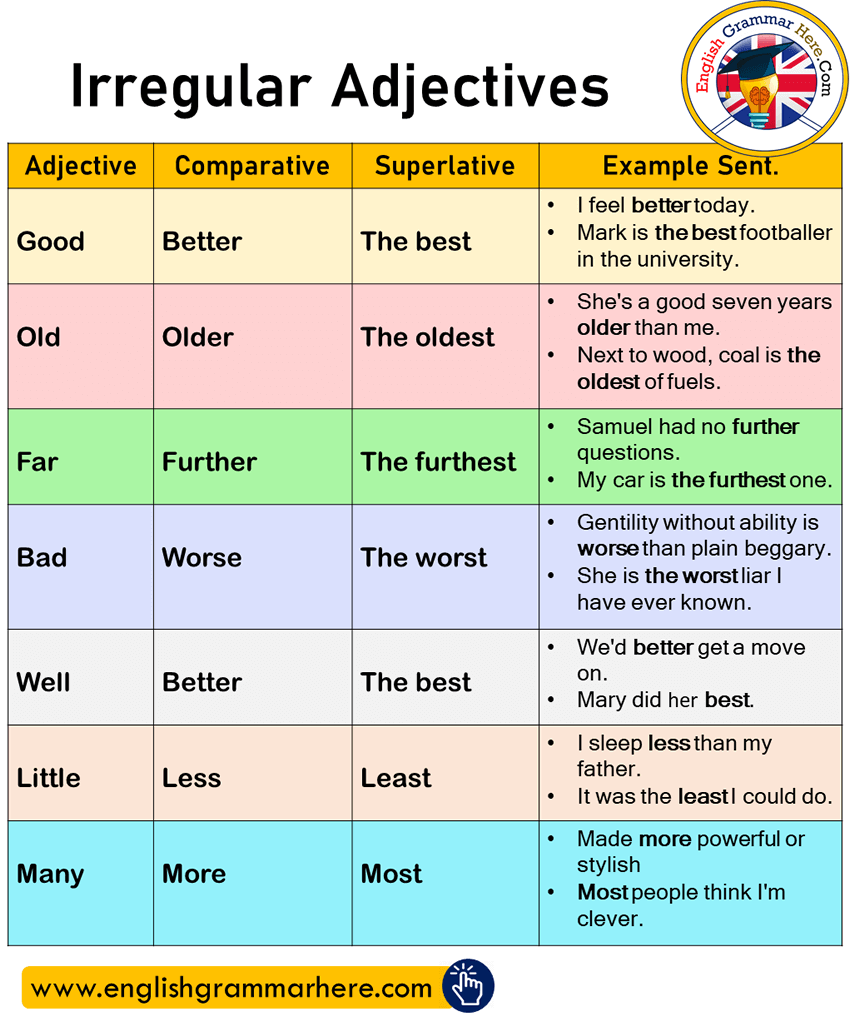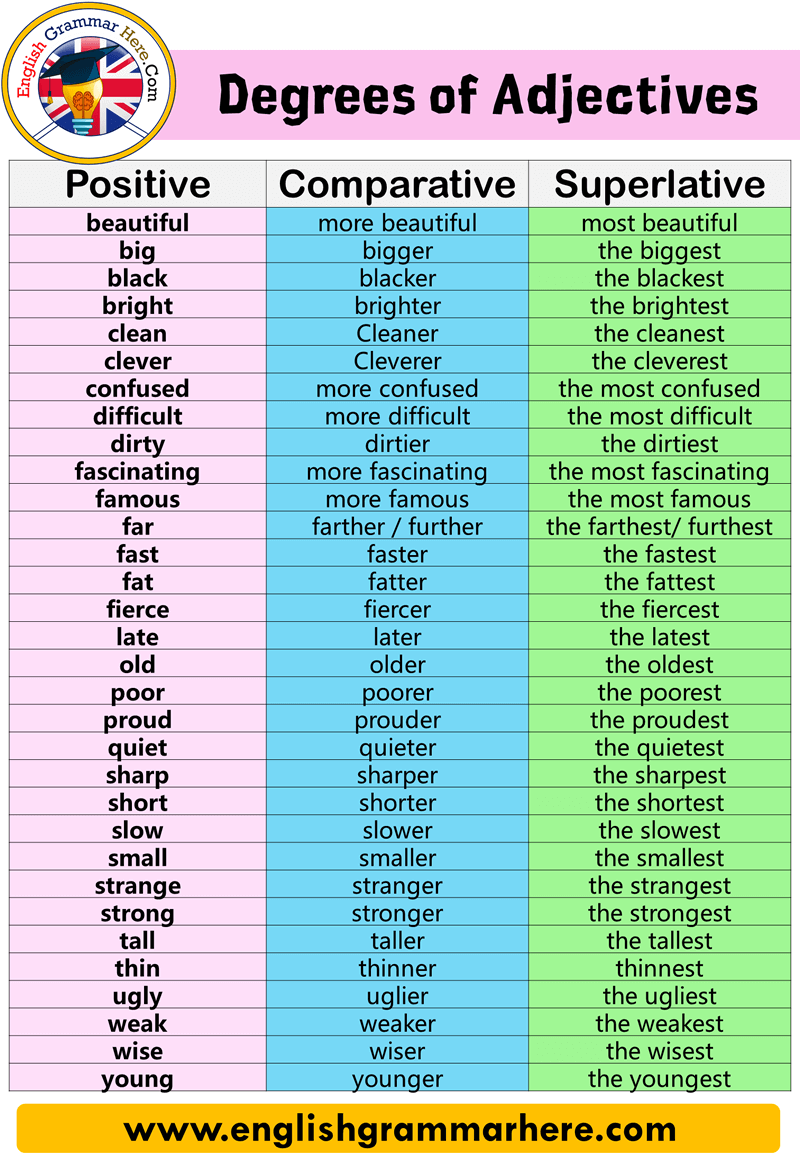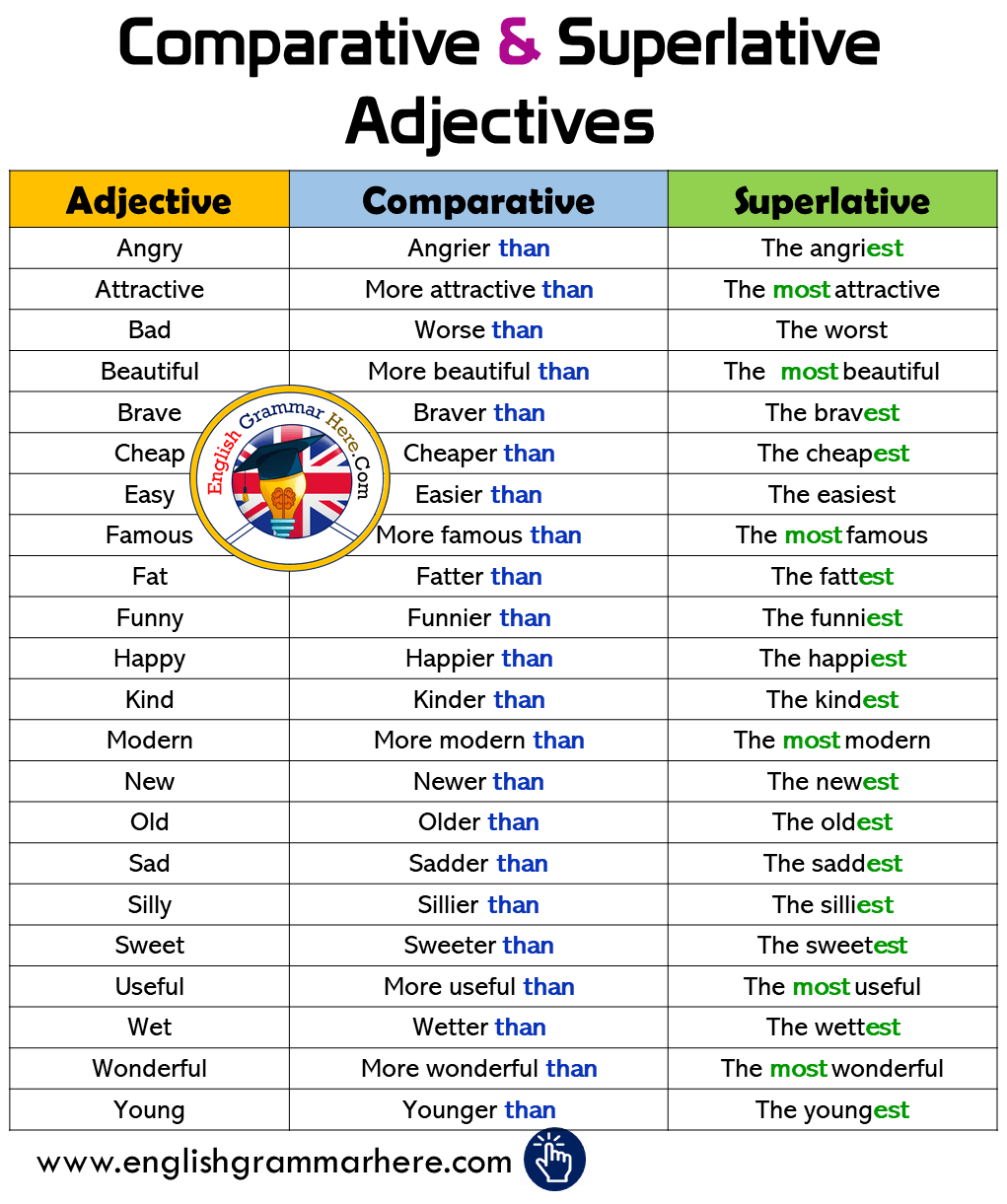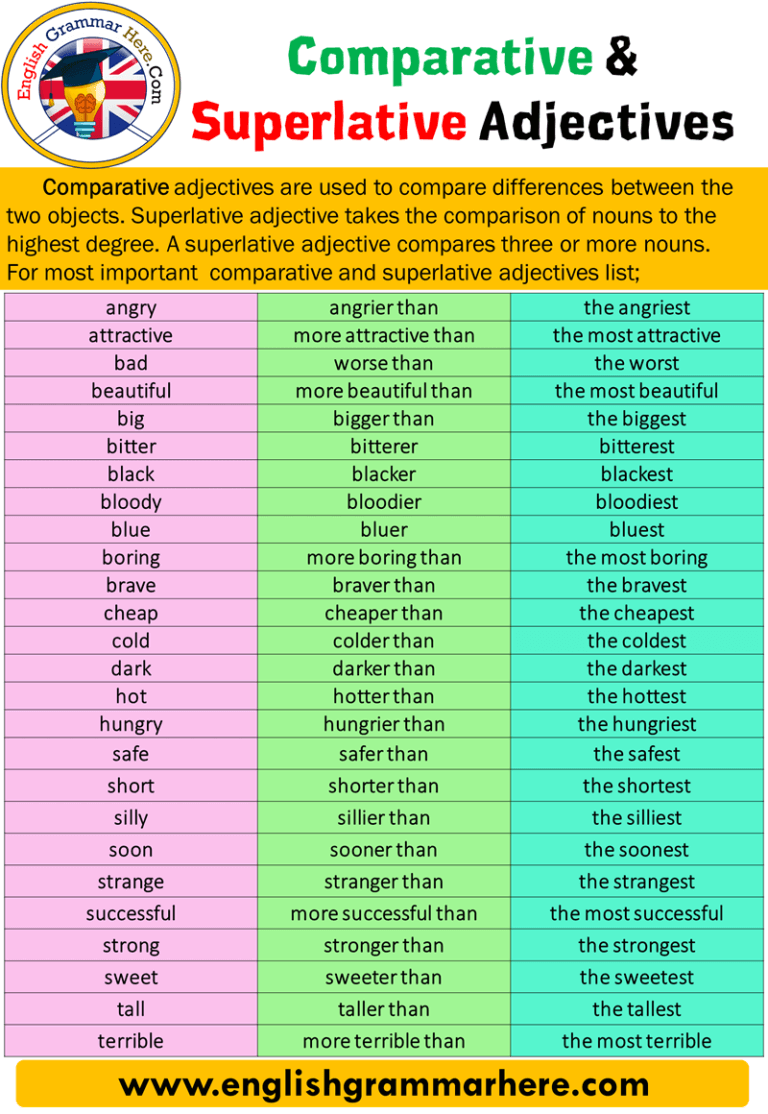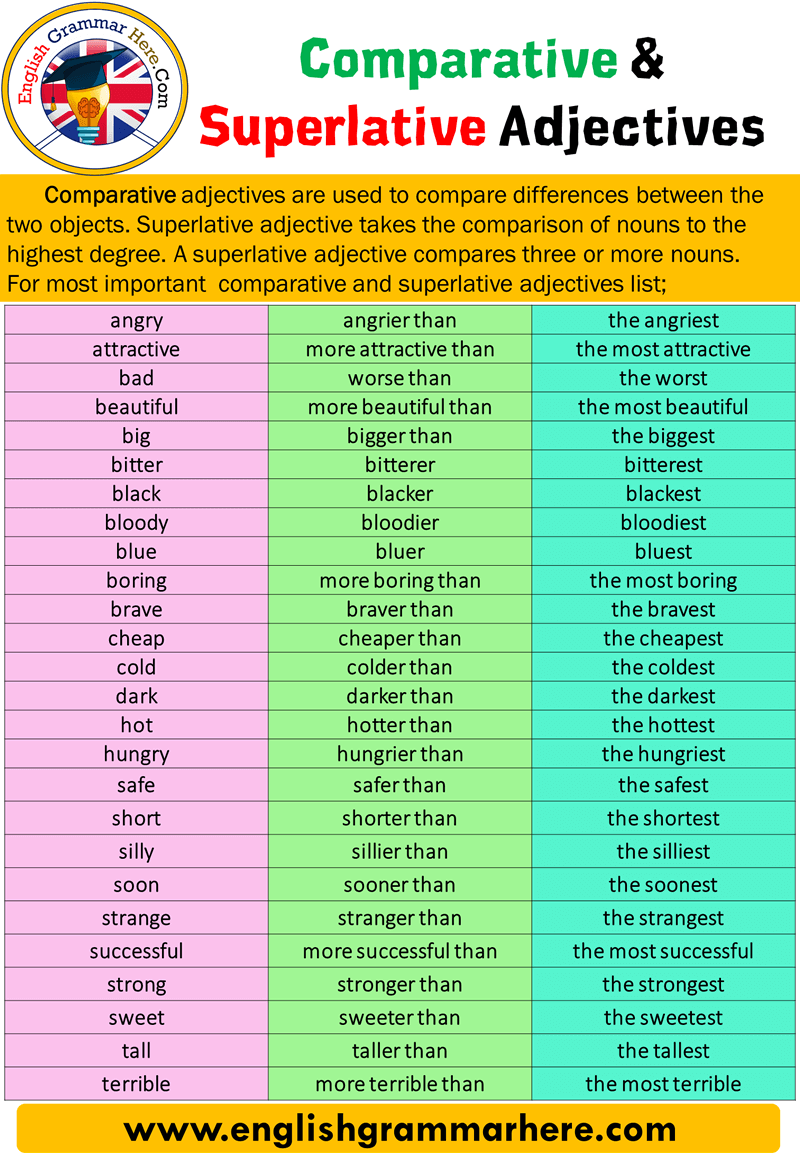Early Comparative Form
Early Comparative Form - 'earlier' is the comparative form of 'early' and. The comparative and superlative forms are earlier and earliest. We most commonly use early. Learn how to use the comparative “earlier” and superlative “earliest” with example sentences and differences. Comparative adjectives help us to. Learn how to use the comparative “earlier” and superlative “earliest” with example sentences and differences. Comparative adjectives help us to. The correct phrase is 'earlier.' 'more early' is not a standard construction in english. Early means ‘near the beginning of a period of time or event’.
Learn how to use the comparative “earlier” and superlative “earliest” with example sentences and differences. Comparative adjectives help us to. The comparative and superlative forms are earlier and earliest. 'earlier' is the comparative form of 'early' and. Early means ‘near the beginning of a period of time or event’. The correct phrase is 'earlier.' 'more early' is not a standard construction in english. Comparative adjectives help us to. We most commonly use early. Learn how to use the comparative “earlier” and superlative “earliest” with example sentences and differences.
Learn how to use the comparative “earlier” and superlative “earliest” with example sentences and differences. Comparative adjectives help us to. Early means ‘near the beginning of a period of time or event’. We most commonly use early. 'earlier' is the comparative form of 'early' and. Learn how to use the comparative “earlier” and superlative “earliest” with example sentences and differences. Comparative adjectives help us to. The correct phrase is 'earlier.' 'more early' is not a standard construction in english. The comparative and superlative forms are earlier and earliest.
Comparative adjectives older than, more important than, etc. Page 3
Learn how to use the comparative “earlier” and superlative “earliest” with example sentences and differences. The correct phrase is 'earlier.' 'more early' is not a standard construction in english. Comparative adjectives help us to. Comparative adjectives help us to. We most commonly use early.
Irregular Adjectives, Comparatives, Superlatives and Example Sentences
The comparative and superlative forms are earlier and earliest. Learn how to use the comparative “earlier” and superlative “earliest” with example sentences and differences. Learn how to use the comparative “earlier” and superlative “earliest” with example sentences and differences. Comparative adjectives help us to. We most commonly use early.
Comparative and Superlative Adjectives Comparison of Adjectives ESL
The correct phrase is 'earlier.' 'more early' is not a standard construction in english. We most commonly use early. 'earlier' is the comparative form of 'early' and. Early means ‘near the beginning of a period of time or event’. Learn how to use the comparative “earlier” and superlative “earliest” with example sentences and differences.
Degrees of Adjectives, Comparative and Superlative English Grammar Here
Comparative adjectives help us to. We most commonly use early. Early means ‘near the beginning of a period of time or event’. The correct phrase is 'earlier.' 'more early' is not a standard construction in english. The comparative and superlative forms are earlier and earliest.
Comparative adjectives Archives English Grammar Here
Comparative adjectives help us to. The comparative and superlative forms are earlier and earliest. Learn how to use the comparative “earlier” and superlative “earliest” with example sentences and differences. Learn how to use the comparative “earlier” and superlative “earliest” with example sentences and differences. We most commonly use early.
Comparatives And Superlatives Superlative Adjectives Adjectives The
The correct phrase is 'earlier.' 'more early' is not a standard construction in english. 'earlier' is the comparative form of 'early' and. Learn how to use the comparative “earlier” and superlative “earliest” with example sentences and differences. Early means ‘near the beginning of a period of time or event’. We most commonly use early.
Adjectives, Comparatives and Superlatives List in English English
The correct phrase is 'earlier.' 'more early' is not a standard construction in english. 'earlier' is the comparative form of 'early' and. Comparative adjectives help us to. Learn how to use the comparative “earlier” and superlative “earliest” with example sentences and differences. Early means ‘near the beginning of a period of time or event’.
FRI/GILLIAN, DISPONIBLE EL 27.2.21 COMPARATIVES AND SUPERLATIVES
Comparative adjectives help us to. 'earlier' is the comparative form of 'early' and. The correct phrase is 'earlier.' 'more early' is not a standard construction in english. Learn how to use the comparative “earlier” and superlative “earliest” with example sentences and differences. Comparative adjectives help us to.
Comparative and Superlative Adjectives, Example Sentences English
Comparative adjectives help us to. 'earlier' is the comparative form of 'early' and. The correct phrase is 'earlier.' 'more early' is not a standard construction in english. We most commonly use early. The comparative and superlative forms are earlier and earliest.
Comparative and Superlative Adjectives Comparison of Adjectives ESL
The comparative and superlative forms are earlier and earliest. We most commonly use early. 'earlier' is the comparative form of 'early' and. The correct phrase is 'earlier.' 'more early' is not a standard construction in english. Learn how to use the comparative “earlier” and superlative “earliest” with example sentences and differences.
We Most Commonly Use Early.
Learn how to use the comparative “earlier” and superlative “earliest” with example sentences and differences. Comparative adjectives help us to. The comparative and superlative forms are earlier and earliest. 'earlier' is the comparative form of 'early' and.
Learn How To Use The Comparative “Earlier” And Superlative “Earliest” With Example Sentences And Differences.
Comparative adjectives help us to. The correct phrase is 'earlier.' 'more early' is not a standard construction in english. Early means ‘near the beginning of a period of time or event’.

